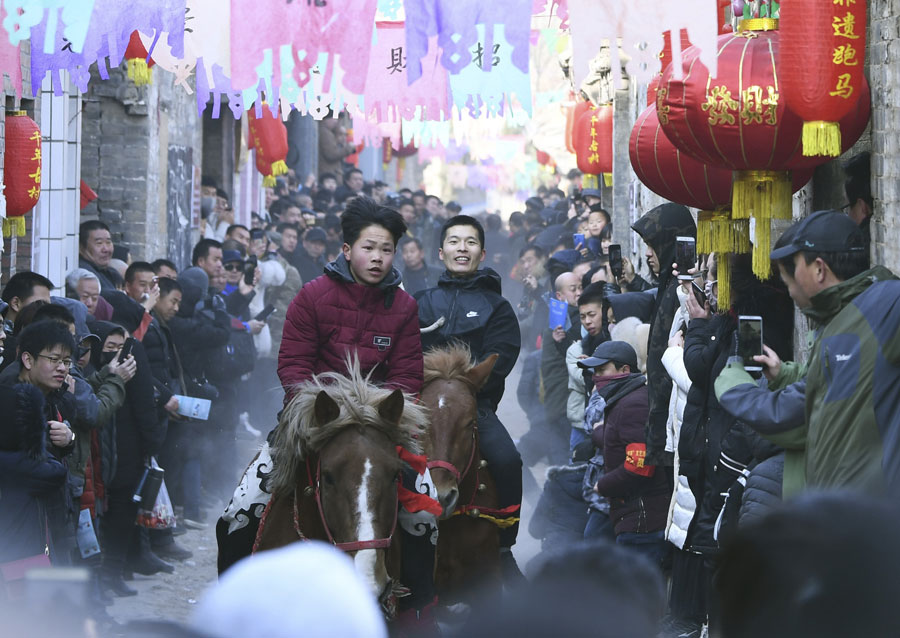Horse riding custom spurs tourism boom

Residents of Xiadongzhai village in Yangquan, Shanxi province, stage a traditional horse riding performance for tourists in the village during this year's Spring Festival. [Photo/Xinhua]
On a bluestone road, performers in ancient Chinese costumes charge on horses, stretching their arms and shouting all the way through.
The audience stands shoulder to shoulder by the road and on rooftops alongside the ancient alley, cheering together with loud drum beats in Xiadongzhai village, in the city of Yangquan in northern China's Shanxi province.
"It is a custom that has lasted for over 1,000 years, and represents the martial spirit," said Yuan Yuxiang, Party secretary of the village.
In the Tang Dynasty (618-907), Xiadongzhai was a military relay station, where army messengers found food, shelter and spare horses before moving on to their next destination.
The process of transferring horses and leaving the station was later adapted into a folk performance held once a year, on the day after Lantern Festival.
Many are attracted by the boldness and skills of the riders, who do not use saddles or stirrups during the high-speed charge.
Over the years, the performance has become the most celebrated event in the village.
"No matter how far people are from home, or how busy they are, they try their best to return home for the fair on that day," Yuan said.
This year, nearly 10,000 people gathered on the road, which is 100 meters long and 4 m wide, to watch the performance.
However, the custom was once on the brink of vanishing.
The village of around 300 people raised funds for the performance, mostly from villagers, who found it increasingly harder to afford.
Luckily, as the fame of the performance grew, tourists brought in more revenue for the village.
"At last year's event, I sold all the goods in my store in less than half a day," said Li Haixia, who opened a grocery store in 2017. This year, she is considering opening a restaurant.
To further boost tourism, the village held activities during the seven-day National Day holiday last year.
"More than 10,000 people visited the village, which exceeded my expectations," Yuan said.
The local township also supported the village by buying horses, building race tracks and setting up professional horse riding teams.
"In the past, the event expressed the villagers' wishes for a bumper harvest year," Yuan said.
"But now, it has become a signature event for the ancient village and brings in real money for the villagers."





